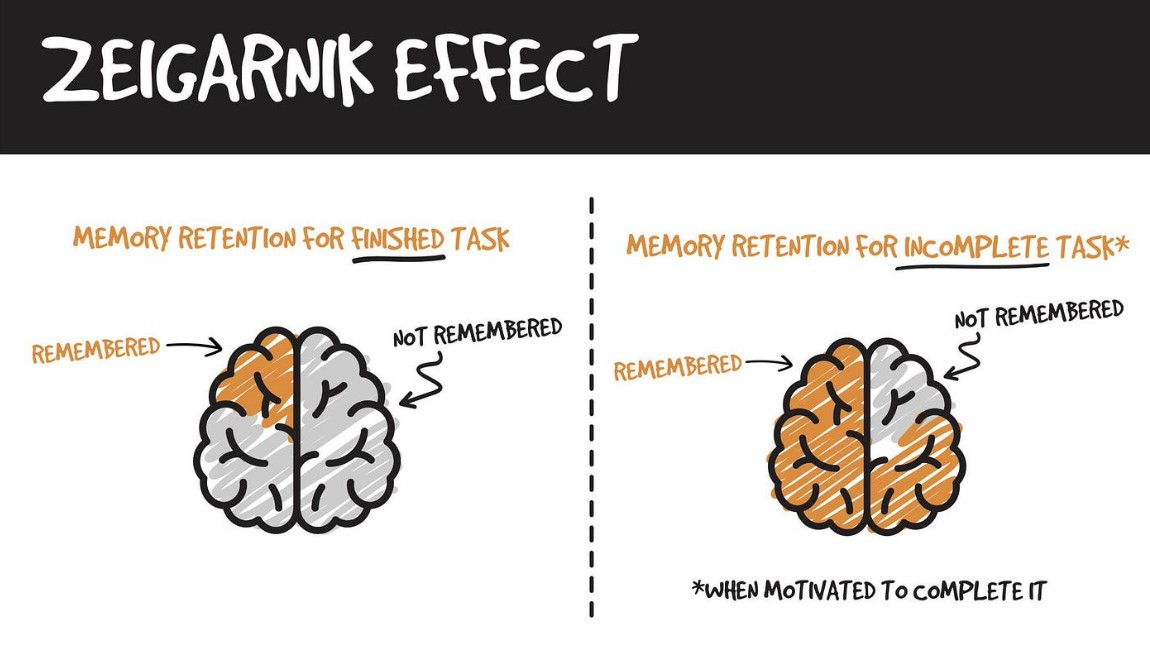The Zeigarnik Effect: The Unfinished Business of Memory
The Zeigarnik Effect is a cognitive bias that reveals how individuals tend to remember and prioritize uncompleted or interrupted tasks more than completed ones. This phenomenon suggests that the human mind has a natural inclination to focus on unresolved matters.
Examples of the Zeigarnik Effect:
To-Do Lists: People often remember incomplete tasks on their to-do lists more clearly than those they have already accomplished.
Unfinished Conversations: Unresolved or interrupted conversations tend to linger in the mind, sometimes causing individuals to ruminate on what was said or what was left unsaid.
Partial Projects: When working on a project, uncompleted portions may occupy more mental space than the parts that have been successfully finished.
The Zeigarnik Effect in Action:
Imagine a situation in which a student is studying for an important exam. During their study session, they are interrupted by a phone call and have to leave. They find that the material they were studying before the interruption lingers in their mind more than the content they studied afterward. The interruption activates the Zeigarnik Effect, making the unfinished task more memorable.
Solutions to Address the Zeigarnik Effect:
Task Completion: Encourage individuals to complete tasks whenever possible, as the Zeigarnik Effect suggests that unfinished tasks can consume mental energy.
Organization: Teach effective organization and time management skills, such as maintaining to-do lists and schedules, to help individuals prioritize and complete tasks.
Mindfulness: Promote mindfulness and the ability to focus on the present moment, reducing the mental weight of unresolved matters.
Closure: Emphasize the importance of closure in various aspects of life, whether it’s in conversations, projects, or personal goals.
In conclusion, the Zeigarnik Effect is a cognitive bias that underscores the human tendency to remember uncompleted or interrupted tasks more vividly than completed ones. To address this bias, it is crucial to encourage task completion, organization, mindfulness, and the pursuit of closure. By doing so, individuals can reduce the mental burden of unresolved matters and free up cognitive resources for other tasks.
